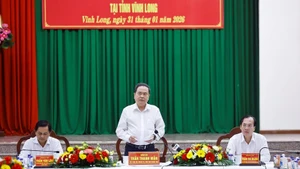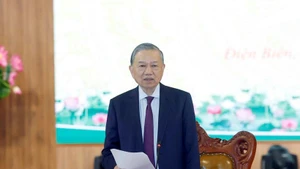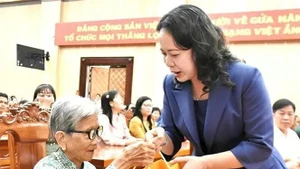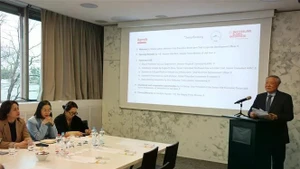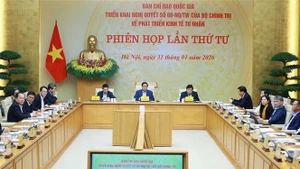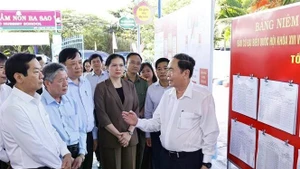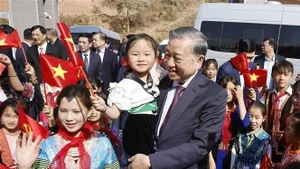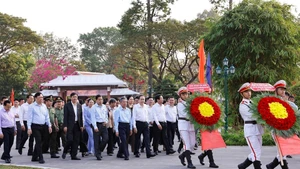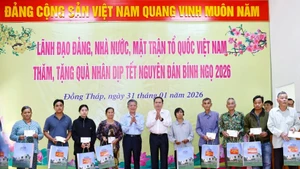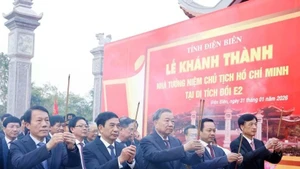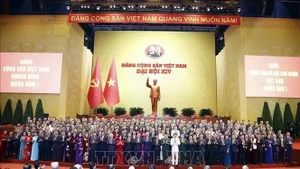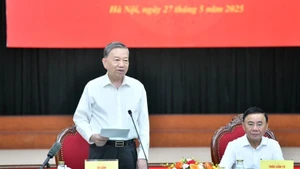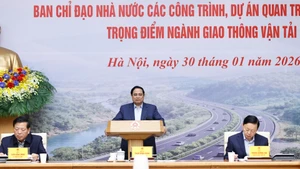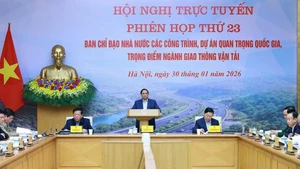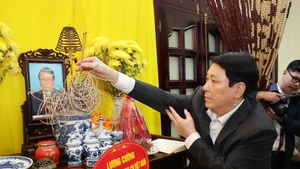On June 5, the Government submitted a consolidated report on the results of the process collecting public comments, involving various sectors and administrative levels, to the Committee for the Draft Amendments and Supplements to the 2013 Constitution.
Extensive, democratic, scientific, and transparent consultation process
The Government assessed that the public consultation on the draft Resolution was, in general, seriously and transparently organised by ministries, sectors, and localities. The process adhered to democratic and scientific principles, stayed on schedule, and closely followed Plan No. 05/KH-UBDTSĐBSHP issued by the the Committee for the Draft Amendments and Supplements, as well as related guidance from competent authorities. The implementation complied strictly with directives from higher authorities, ensured the leadership of Party committees at all levels, emphasised the accountability of heads of agencies, and promoted coordination among relevant entities.
Various consultation methods were employed, including organising conferences, seminars, and roundtable discussions at multiple administrative levels (communal, district, provincial, and agency-level). Specific channels were also established to receive feedback from diverse sources. Agencies and units were assigned to develop specialised feedback on related contents of the draft Resolution.
Notably, some localities adopted innovative and effective methods, such as creating online sections for feedback collection via Google Forms and email, and distributing opinion forms to union members, association members, and citizens handling administrative procedures at public service counters.
Several localities held thousands of conferences, seminars, and roundtables to gather feedback from individuals under their jurisdiction, as well as from experts and scholars. Statistics show that a total of 288,546 events were held for dissemination, consultation, and discussion on the draft Resolution.
In order to promote the people's right to mastery, tap into the collective wisdom and dedication of the population, and express the people's will and aspirations regarding the constitutional amendments, many ministries, sectors, and localities took a proactive and extensive approach to the consultation process. Some agencies even organised feedback collection across their entire systems, such as the Supreme People's Court, the Supreme People's Procuracy, the Central Committee of the Viet Nam Fatherland Front, and the State Audit Office.
In particular, the use of the VNeID app significantly facilitated citizen participation, ensuring transparency, democracy, inclusiveness, and substantive contribution. This helped to gather the insights and dedication of people from all walks of life, organisations, experts, and scholars both domestically and abroad, while also reducing the time required for collecting and consolidating public feedback on the draft Resolution.
The consultation process was largely completed on schedule, with several ministries, sectors, and localities submitting their reports ahead of the May 30, 2025 deadline.
Accordingly, a total of 280,226,909 comments were received from agencies, organisations, and individuals. Among them, the amendment to Article 9 of the 2013 Constitution regarding the Viet Nam Fatherland Front and its member organisations attracted the most attention, with 37,143,884 comments, accounting for 13.25% of the total.
The 99.75% approval rate confirms the high level of public agreement and unity on the proposed constitutional amendments, truly reflecting the will and aspirations of the people.
However, reports from agencies revealed some limitations and challenges during the consultation process. The feedback period was relatively short and coincided with multiple important tasks being carried out by the political system. Human resource allocation for collecting public opinions proved difficult, especially given the broad scope of consultation, large workload, and limited resources due to ongoing administrative restructuring. Furthermore, the use of the VNeID application remained limited in remote, mountainous, and particularly difficult areas, leading to uneven participation levels among different population groups.
This was also the first time Vietnam conducted a nationwide public consultation on a legislative draft via the VNeID application, and as such, it was not without confusion or errors on the part of the public during the feedback process.
Proposal to maintain the right to question Chief Justices and Chief Procurators
Based on the consolidated feedback from the public, sectors, and local authorities regarding the draft Resolution, the Government has proposed revisions to the draft. In particular, regarding the right of socio-political organisations to propose draft laws and ordinances (Amendment to Clause 1, Article 84 of the 2013 Constitution), aligning with numerous opinions from ministries, sectors, and localities, the Government believes that the right to propose draft laws and ordinances reflects the democratic rights of socio-political organisations and should therefore be expanded.
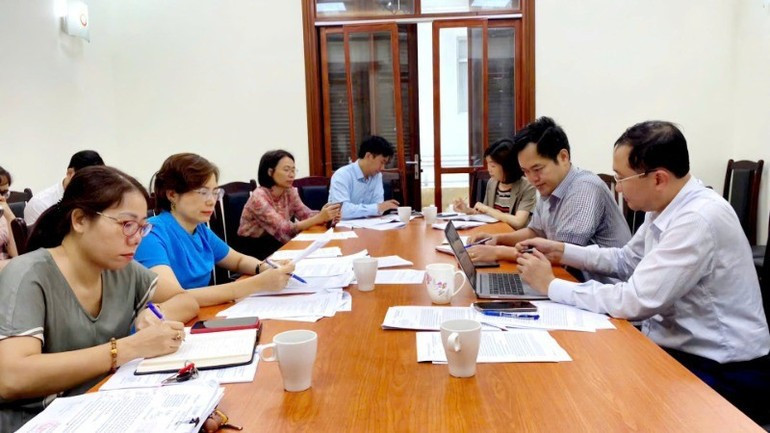
Accordingly, the Government proposes that central bodies of socio-political organisations be granted the right to submit draft laws to the National Assembly and draft ordinances to the the National Assembly Standing Committee. It recommends revising the phrase “central bodies of member organisations of the Fatherland Front” in Clause 1, Article 84 of the 2013 Constitution to read “central bodies of socio-political organisations.”
On the organisation of administrative units (Amendment to Article 110 of the 2013 Constitution), the Government agrees with the proposed amendments to Article 110 in the draft Resolution, aiming to institutionalise the Party’s policy on streamlining the organisational apparatus of the political system as outlined in Resolution No. 60-NQ/TW. However, the Government recommends retaining the provision in Clause 2, Article 110 of the 2013 Constitution, which states that the establishment, dissolution, merger, division, or adjustment of administrative boundaries must involve local public consultation and follow procedures prescribed by law. This provision ensures the people’s right to self-determination and provides a legal basis for open and democratic discussion on matters directly affecting citizens.
The Government also agrees to amend Articles 111, 112, and 114 of the 2013 Constitution to define local government as comprising the People’s Council and the People’s Committee. It recommends omitting the term “level of local government” to ensure consistency in the local government model and avoid confusion or multiple interpretations of local governance structures. Several provisions will be reviewed and revised for alignment with the new political system model following organisational streamlining.
Regarding the right to question Chief Justices and Chief Procurators (Amendment to Clause 2, Article 115 of the 2013 Constitution), the Government proposes retaining the current provision in Clause 2, Article 115 of the 2013 Constitution without amendment, which states: “Deputies of the People’s Council have the right to question the Chairperson of the People’s Committee, other members of the People’s Committee, the Chief Justice of the People’s Court, the Chief Procurator of the People’s Procuracy, and heads of agencies under the People’s Committee…”
This regulation ensures effective oversight of constitutional and legal compliance at the local level, including the operations of the People’s Courts, the People’s Procuracies, and other state agencies. It guarantees a mechanism for checking the exercise of state power among local authorities and officials, thereby enhancing transparency and democracy in the functioning of the state apparatus.
“The consolidated feedback from the public, sectors, and local authorities shows broad support for maintaining this mechanism and calls for a revision to allow deputies of provincial-level People’s Councils to question Chief Justices and Chief Procurators at both the provincial and regional levels,” the report noted.
The Government also agrees to set the effective date of the Resolution amending and supplementing certain provisions of the 2013 Constitution as July 1, 2025. This will establish a constitutional basis for implementing the Party’s directives under Resolution No.60-NQ/TW. At the same time, it endorses provisions for declaring the dissolution of existing district-level administrative units nationwide.
Based on the consolidated report of public opinion submissions sent to the Government (via the Ministry of Justice), the Government compiled and analysed feedback from the following sources:
- Nine reports from the Office of the Party Central Committee (PCC), the PCC’s Commission for Organisation, the PCC’s Commission for Communications, Educaftion and Mass Mobilisation, the PCC’s Commission for Policy and Strategy, the Office of the President, the Supreme People’s Court, the Supreme People’s Procuracy, the State Audit Office, and the Standing Committee of the Vietnam Fatherland Front Central Committee.
- Government’s report aggregates opinions from 22 ministries, ministerial-level agencies, and government-attached bodies, as well as 63 provincial-level People’s Committees.
- Public comments were collected via VNeID application.
- Public feedbacks were collected via the NA’s Portal (managed by the NA Office) and the Government Portal (managed by the Government Office), both of which facilitated online public consultations.
In addition, five written contributions by various organisations and individuals were sent directly to the Government and the Ministry of Justice.

